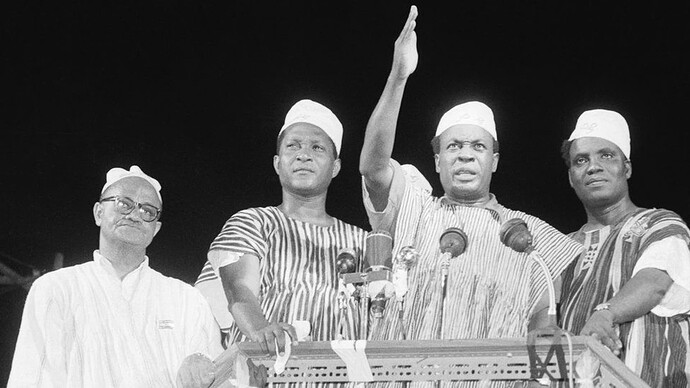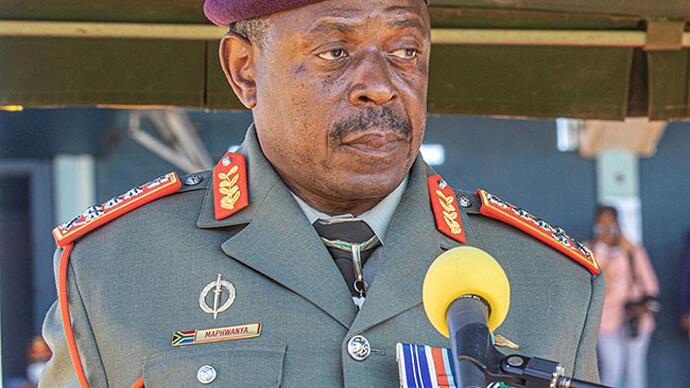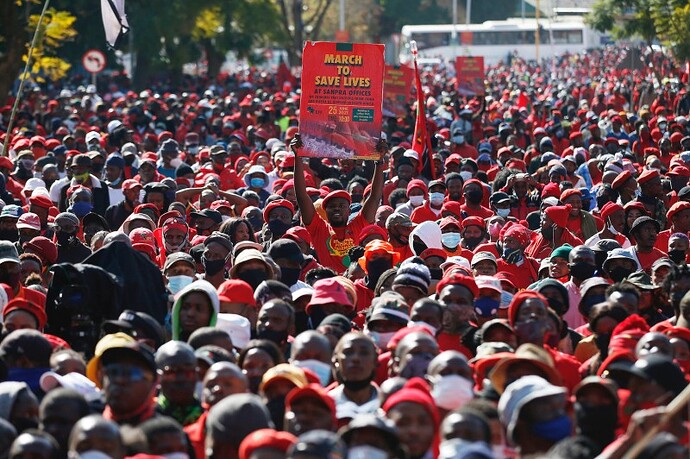History
Before Evinea existed, tribes simply roamed around the region. These tribes were allies and rarely went to war as they were generally peaceful. However, if they did face conflict, they would fight valiantly and generally be the winner. Tribes such as the the Ako, Biafa, Asati, Kondo, and Biansa were the strongest tribes in the region. They prospered greatly in the region, and were some of the richest tribes in Pacifica.
Unfortunately in 1883, those tribes and others in Africa would be subject to a brutal mass colonization campaign. The Australs would conquer and divide the tribes among their difference to expand their empire. Austral would colonize the tribes between 1883 and 1967 and be renamed as Australi Evinea. Australi Evinea would be an unfortunate colony until the fateful day of May 22, 1949.
Nnamdi Nkrumah and the Evinean Liberation Front (ELF) started a campaign to end Australi rule over the region and become independent. The ELF destroyed ship ports and buildings and made a formal declaration of their independence. The Australs were outraged at the attempt of their colony to seek independence and moved their troops in to quell the uprising. The Evinean War of Independence had now begun. The Australs were initially successful in pushing back the Evineans, however, the nationalist spirit could not be easily suppressed. He once gave a famous speech in which he used the sun as inspiration for hope, saying that “even in the darkest of times which we are in now, no ray of light will be unable to pierce it. Those rays of light begin to shine through in our fight for independence”. In 1953, the ELF won a strategic victory in the Battle of Lacragos and humiliated the Australs. Then in 1956, the ELF had their most important victory in the war. After 2 months of fighting in Abuja, the ELF militants were finally able to overcome the Australs and secure the city. The Battle of Abuja ultimately cemented the victory of the ELF, and the Australs had no choice but to recognize Evinea’s independence. On November 23, 1956, the Lagos Accords were signed by ELF Leader Nrukmah and the Australi Prime Minister, and Evinea was officially a nation. Nnamdi Nkrumah then became the first president of the newly found Solacratic Republic.
The nation of Evinea was finally united, yet, there was a underlying issue at hand. There was a brewing religious rivalry between the southern Christian population and the northern Muslim population. Both groups greatly despised each other, as they both want to assert religious dominance over the nation. There were only minor instances of fighting but that would soon change. Extremists from both religions created the Evinean Crusade (EC) and The Great Jihad of Evinea (GJE) respectively. In 1965, the EC declared war on the GJE, formally starting the Evinean Civil War. The fighting was brutal. War crimes were widespread. Kidnappings were common occurrences. The nation was stuck under a state of terrorism. Things were about to get a lot worse. On October 27, 1968, the GJE raided the home of President Maurice Sankara and assassinated him. A interim government was immediately set up, headed by Thomas Anakara. Military operations were formed to gain back the nation from the militants. There was an overwhelming support from the general Evinean populace. On December 1, 1972 and December 28, 1972, the Evinean forces captured the leaders of the Crusade and the Great Jihad. The brutal civil war was finally over. The new government in response to this religious rivalry formally declared that Evinea would be an atheist state. This declaration weakened the religious power in the nation, which strengthened the newfound peace in the nation.
The nation started to recover from the civil war. During this period, Evinea was able to find peace and prosperity. Democracy took a stronghold in the nation, giving the people free choice. Evinea was always democratic but they were truly able to cement their democracy in this period. Meanwhile, the Evinean economy was booming. The nation had discovered plentiful reserves of oil and minerals, and quickly capitalized on the resources. In addition, the agricultural and arms manufacturing industries exponentially grew. In a matter of time, Evinea had one of the fastest improving economies. The Evinean Armed Forces also received a glowup. Seeking inspiration from the American military model, the Evinean government completely revamped the military. From shuddy gear to a top-class arsenal, the Evinean Armed Forces were a force to reckon with. It appeared that Evineans were in a period of prosperity that would never end. Unfortunately, this would not be the case.
On March 4, 1985, the paramilitary force, the Lion Front, led by Jerry Eyadama, along with some members of the Evinean Armed Forces performed a successful coup on the government and ousted them. Jerry Eyadama then assumed the presidency and plunged the nation into the darkness of authoritarianism for 15 rough years. Eyadama’s regime quickly suppressed political freedoms and civil rights. People could not oppose them and voting was abolished. Gay marriage was abolished, abortions were banned, and protests were prohibited. Human rights abuses were frequently committed. LGBTQ+ individuals were extra-judicially killed, women were outlawed from going to school, slavery and the enforcement corporal punishment were some of the few human rights violations. The nation that was prospering a few years ago, was now in the dark. Ironically, Eyadama in many aspects maintained, and even strengthened the Evinean economy, yet this did not excuse his authoritarianism. His iron fist tightly destroyed the lives of Evineans and was persistent in his brutality. However, Eyadama’s ruthless days numbers.
On April 17, 2000, a woman named Sarah Amouzou protested in the streets of Evinea. She wanted freedom and peace back in her nation. It seemed the whole nation had seen her act because they were greatly inspired by her actions. To their outrage, Eyadama’s forces arrested Amouzou and imprisoned her for life. In response, Evineans took to the streets and protested Eyadam’s regime. The Revolution of Integrity had started. Valiantly and graciously, Evineans demanded the return of democracy, civil rights, and political freedom. Eyadama quickly tried to suppress the protests, but everytime he did, the protests grew louder and stronger. The events in Evinea had been seen internationally, and their was a immense support for the protests. Governments around the world applauded the protests and requested that Eyadama and the rest of his government resign. These statements added more energy into the revolution. Eyadama initially resisted the calls to resign and continued to try to quell the revolution but was to no avail. The revolution was to strong, and he knew. To the joy and celebration of Evineans, Eyadama resigned. The Revolution of Integrity had prevailed and would no set the course of Evinea’s future.
Evinea in this modern day age is back in its days of prosperity. It’s economy is a powerhouse, and civil rights and political freedoms are well protected. The Evinean Armed Forces stands valiantly. Democracy continues unfazed in Evinea. In addition, Evinea continues to prop itself up on global stage, desiring and ensuring its legacy does not waver.


